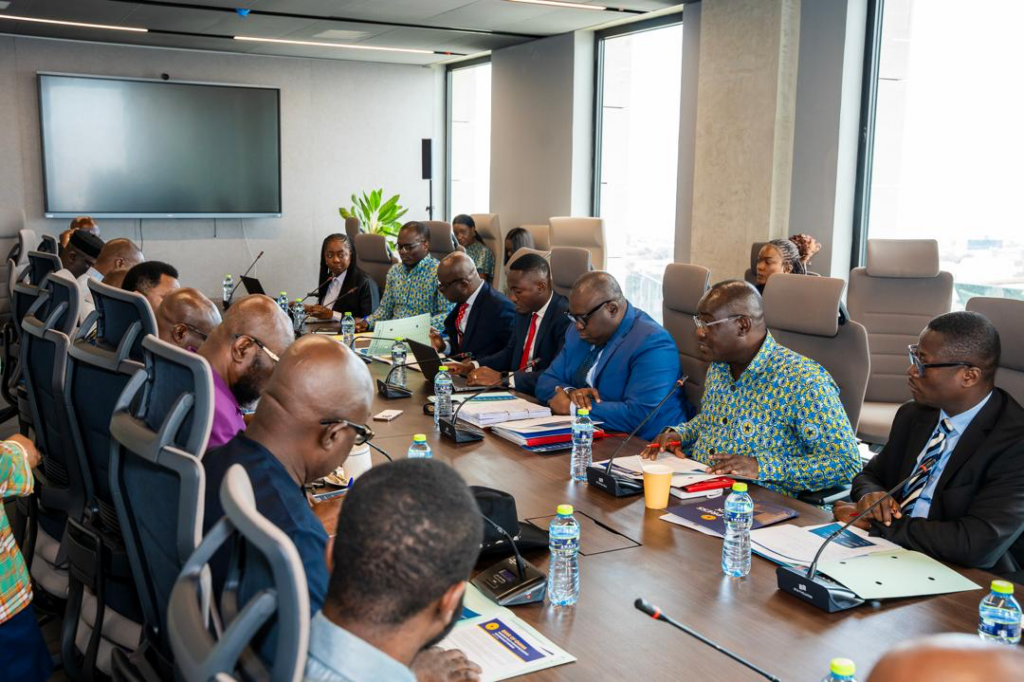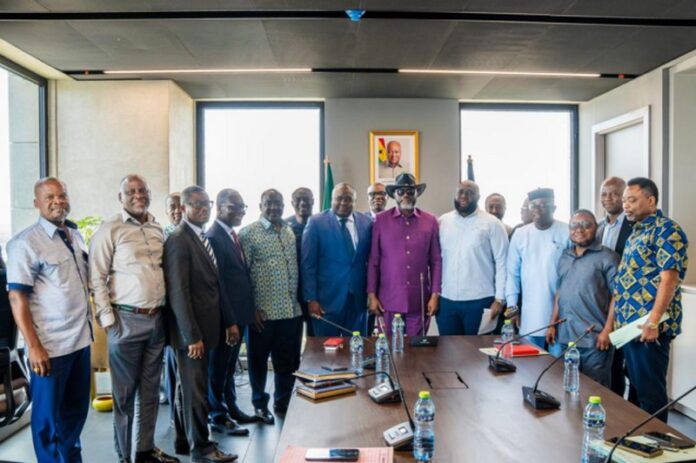The Bank of Ghana (BoG) met with the leadership of the Ghana Union of Traders Association (GUTA) on Friday at the Bank Square to address growing concerns from the trading community over rising interest rates and their impact on business operations.
The meeting, part of BoG’s broader stakeholder engagement following its recent Monetary Policy Committee (MPC) session, aimed to foster dialogue with the business sector amidst the country’s tightening monetary policy environment.

The Bank acknowledged the frustrations of traders over high borrowing costs and assured GUTA of its commitment to supporting a stable macroeconomic environment conducive to long-term growth.
BoG explained that both external and domestic inflationary pressures have driven its recent policy stance, which includes raising interest rates to anchor inflation expectations and protect purchasing power.

In its presentation to GUTA executives, the central bank defended the rate hike, saying it was necessary to curb inflation, which if left unchecked, would erode business confidence and economic stability.
While admitting the policy may pose short-term difficulties for businesses, the Bank maintained that it is vital for preserving long-term economic health.

For the first time since the adoption of its inflation-targeting regime, the MPC disclosed individual voting patterns of its members—an unprecedented move toward transparency and accountability in Ghana’s monetary policymaking.
The Bank believes this will build public confidence and help businesses make informed decisions.

Present at the meeting were key BoG officials, including Dr. Philip Abradu-Otoo, Director of Research; Bernard Otabil, Director of Communications; Ismail Adam, Acting Head of Banking Supervision; and Mr. Ernest Nii Sowah Ahulu, Officer-in-Charge of Financial Markets.
GUTA was represented by its President, Dr. Joseph Obeng; First Vice President, Clement Boateng; Second Vice President, Charles Gyan; and other executives of the association.

